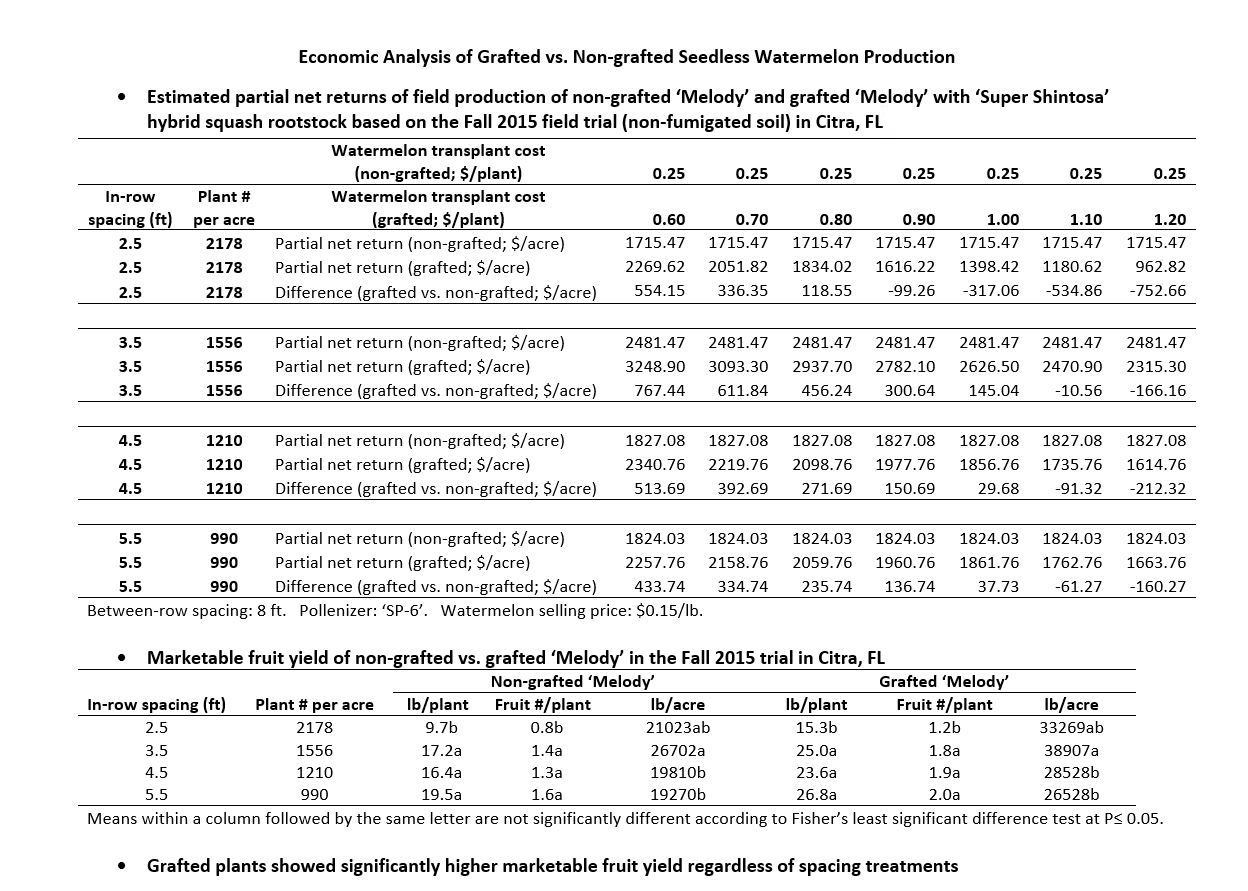Research
Soil-borne Disease Management
Determine the effects of using grafted watermelon transplants for controlling Fusarium wilt in problem-fields, and in field “hot spots” where high disease pressure has led to consistent failure of previous watermelon crops.
Management System
Compare grafted and non-grafted watermelon production at different in-row spacings to determine the feasibility of reducing planting density for grafted watermelons while maintaining/improving fruit yield.
Fruit Quality Assessment
BACKGROUND
The market demand for seedless watermelon has been continuously increasing because of consumer preference. Grafting is a useful tool to manage soilborne diseases in watermelon production, but the use of squash rootstocks may negatively affect watermelon fruit quality. Currently, most research has focused on seeded cultivars, while grafting effects on seedless watermelons remain largely unknown. This multi-season study was conducted to assess the effects of squash rootstocks, including both Cucurbita maxima × C. moschata and C. moschatacultivars, with intact or excised and regenerated roots, on fruit quality of seedless watermelon ‘Melody’ using both instrumental and sensory measurements under different production scenarios. The grafted watermelon plants were also challenged by field inoculation with Fusarium oxysporum f.sp. niveum.
RESULTS
A combination of instrumental measurements and consumer sensory analyses suggested that fruit quality of the seedless watermelon ‘Melody’ was not impacted by the use of the squash rootstocks used in this study, which included soluble solids content, titratable acidity, pH and most fruit sensory properties. Watermelon flesh firmness was increased by grafting but the grafting effect on lycopene content was inconclusive. Root excision and regeneration did not influence the grafting effect, whereas the grafting effect on flesh firmness varied among the rootstocks under Fusarium inoculation.
Fruit quality of seedless watermelon grafted onto squash rootstocks under different production systems
Economic Analyses


